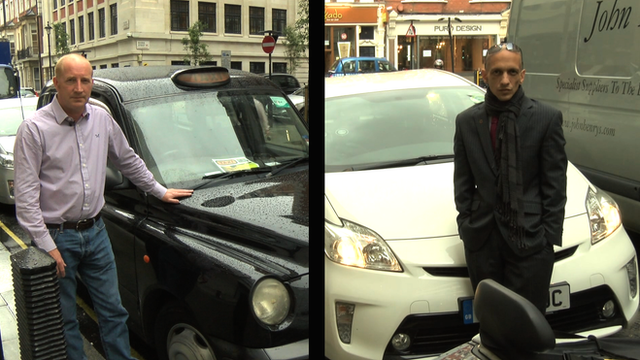Drivers and campaigners hail Uber employment ruling
- Published
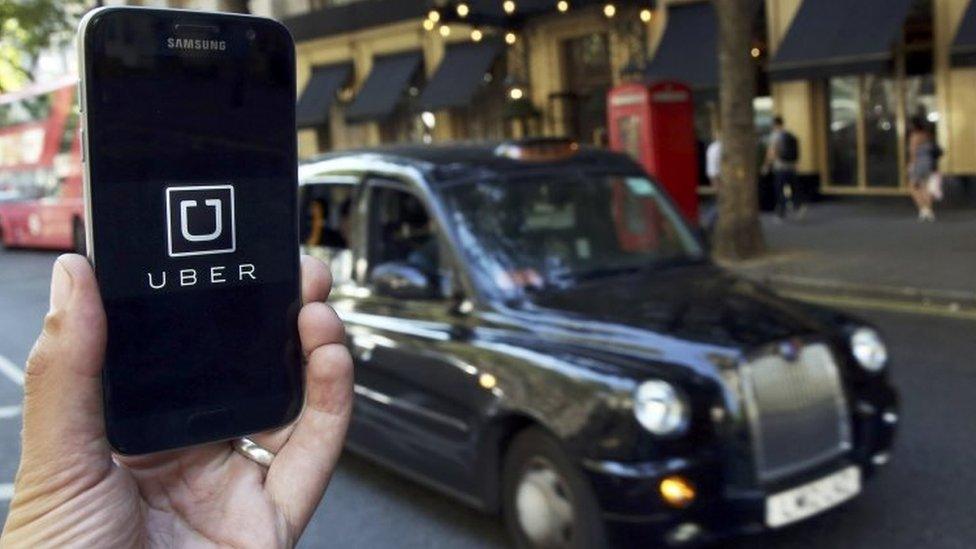
Uber will no longer be able to treat staff as "self-employed" after the landmark ruling
Campaigners have hailed a landmark ruling giving Uber drivers the right to the minimum wage, paid holiday and sick leave.
After fighting the battle at a London employment tribunal, former driver and GMB union branch secretary Steve Garelick said he was "beside himself with joy".
The ruling found drivers for the cab service should not be treated as self-employed and have the same working rights as other staff.
And although the case focused on Uber, Mr Garelick believed it would not just be drivers who saw the benefits.
"This is for anyone who works in this type of economy," said Mr Garelick. "You could be a cleaner that works through an app, but now you have the right to a quality of life.
"It is so important to workers. I think what we have done here is ensure employment rights for the future. I couldn't be happier."
'Major implications'
Uber has more than 30,000 drivers across the UK who it described as "independent contractors" or self-employed.
Bosses of the mobile app company, which lets customers order taxis over their smartphones, said their status did not entitle them to the benefits of employees and is to appeal against the decision of the tribunal.
But the drivers said they were being treated unlawfully.
The Central London Employment Tribunal ruled in the drivers favour, with the GMB union saying that outcome of the case could have "major" implications for other staff at the firm.
John Moylan explains the significance of the Uber court case
One of the drivers who took the case up in court was James Farrar.
Averaging just £5.03 an hour when working over the summer, the London driver said his finances were "really starting to bite" without the security of employed workers' rights.
Speaking to the BBC's Victoria Derbyshire show before the ruling Mr Farrar said: "If you want to cover your costs and keep the family afloat, you have got to work a lot of hours with Uber.
"You can turn on the app and work whenever you want. You can stop whenever you want and go home. The only problem is that if you are not working, you are not earning, and the earnings are so much lower than I expected.
"It's well below minimum wage."
Khaled Mohamed-Hadg, who drives for Uber in London, said he will be following Mr Farrar's suit and taking up his case with the GMB as well.
"I am very happy with this decision," he said. "It is very important, because we are happy to play our part in helping the economy, but we want to be treated fairly and paid fairly.
"If you drive so much because you earn so little, if its bad for your health. I know people who drive 12 or 15 hours a day to make the money and don't even make minimum wage, so this could make all the difference to them.

How the case unfolded...
This summer, two Uber drivers took the company to an employment tribunal with the help of the GMB Union.
James Farrar and Yaseen Aslam argued that they were "employed" by Uber, which under employment law would entitle them to certain rights, including sick and holiday pay.
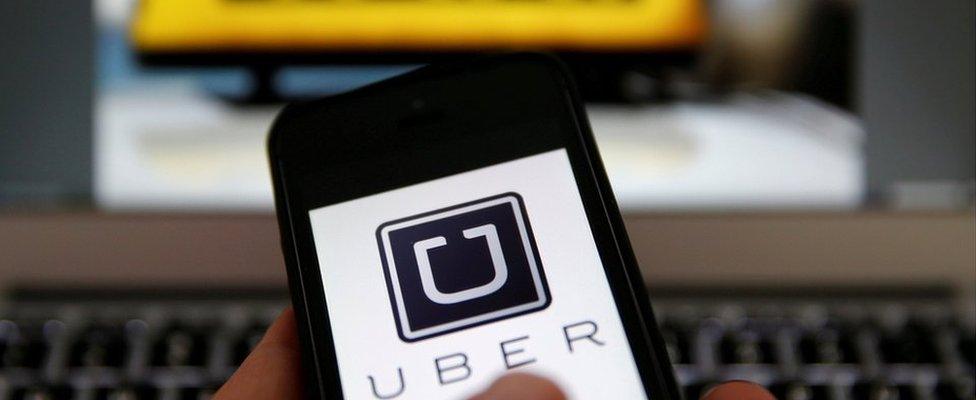
But the company insists it was simply a technology platform that links supply with demand - in this case the supply of self-employed drivers with demand for cabs.
After deliberating over the case, the employment tribunal in London ruled in favour of the drivers, agreeing they should be treated as employees and entitled to all the workers' rights that go with it.
A further 17 claims have been brought against Uber, according to law firm Leigh Day, which are likely to be decided on this ruling.
Uber is to appeal against the decision.

New business model
Another Uber driver, Asif Hanif, said it was not just about the cash but workers' rights.
Reacting to the ruling, he said Uber should meet any financial implications from the ruling from its profits - and not pass on price rises to drivers or passengers.
Mr Hanif said once his expenses are taken into consideration he does not earn the minimum wage. He said the rights of Uber drivers have "long been denied".
Uber needed a business model that "fits the British society and British economy", he told the BBC.
"Flexibility does not mean that you can abuse the workforce because if these companies have come and operate in Britain then they have to respect the law of the land and they have to respect that Britain has enabled them to earn an enormous amount of the profit."
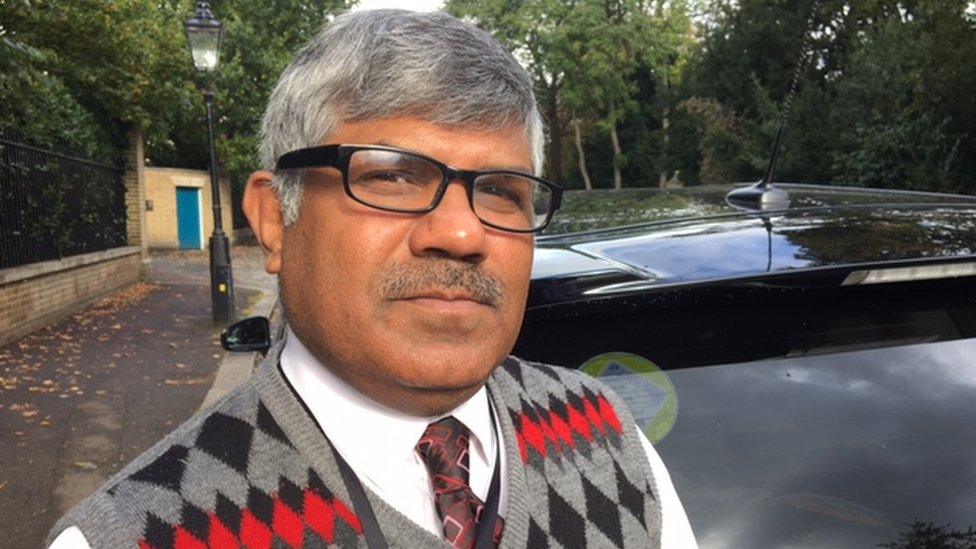
Asif Hanif says drivers' rights "have long been denied"
He told the BBC: "With Uber, even though they've said it's an app-based and we are self-employed, how could I be self-employed?
"When I open the app, then only I go online through Uber - I got the jobs through them, on their conditions."
'Dumbfounded'
But Steven Rowe, who has driven using the Uber app for four years, considers himself a self-employed man and thought prices would go up if he was treated as an employee.
After the ruling, he told BBC News: "It was a perfect platform for me. It gave me the flexibility I wanted and when I wanted.
"It had never occurred to me in four years that I would be getting sick pay and leave. I don't see myself as employed, I don't see myself as working for Uber. I see myself as my own boss, making my own decisions and I can't believe this decision is being called a success for the drivers.
"The vast majority of us will be really, really worried if Uber can run in the very successful way it has been doing in this country."
- Published25 August 2016
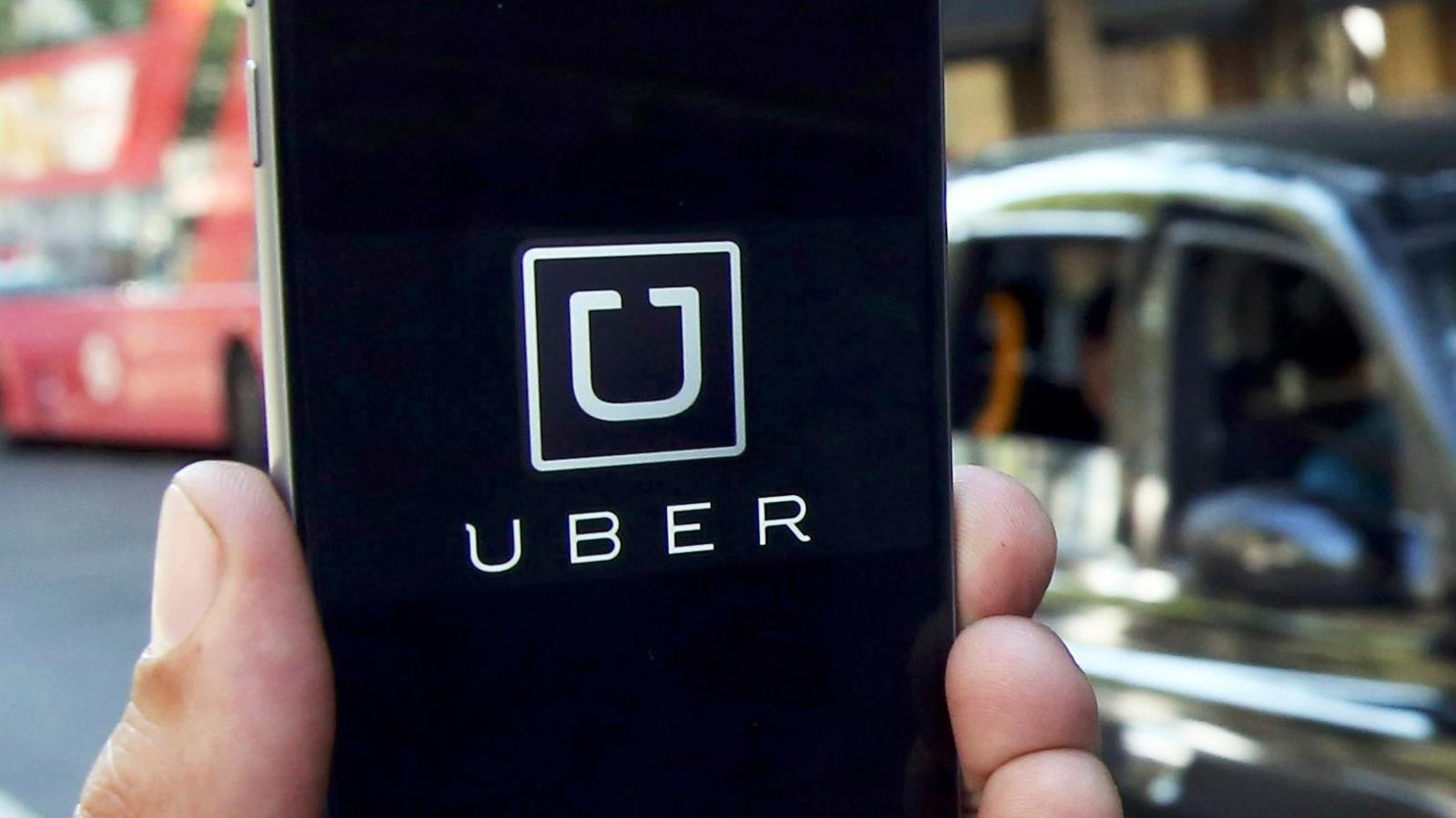
- Published16 September 2016
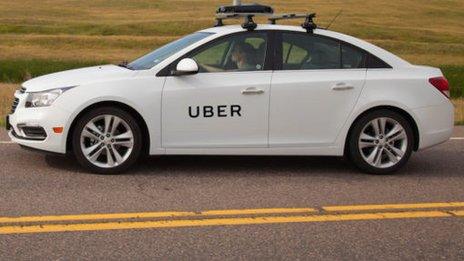
- Published8 June 2014
